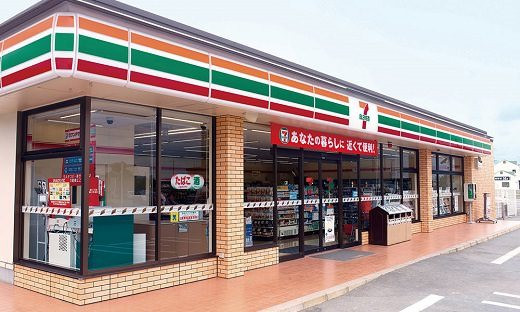The Future of Japan Lies in its Thriving Convenience Store Industry

To understand how Japan is evolving, one only needs to look at the 7-Eleven convenience store in Minami-Azabu 1, located in the heart of Tokyo. At first glance, it may seem like any other convenience store (known as “konbini” in Japanese) in the country, reflecting Japan’s culture of impeccable service.
The staff greets customers as soon as they enter, and the shelves are filled with seasonal snacks, while the aroma of freshly cooked chicken permeates the air. However, all the employees, including the store owner, May Zin Chit, are from Myanmar. May is the first Myanmar citizen to own a 7-Eleven franchise in Japan.
Konbini stores are the backbone of modern Japan. Since their rise in 1969, they have far surpassed their American predecessors and become an essential part of the country’s social infrastructure. The konbini industry generates an annual revenue of $77 billion in Japan.
The four major convenience store chains – 7-Eleven, FamilyMart, Lawson, and MiniStop – operate a total of 55,700 stores and served a total of 16 billion customers last year. Japanese people buy fresh food, pay bills, send parcels, and do countless other tasks at these 24/7 stores. Foreign tourists are amazed by the range of services they offer, and renowned international chefs applaud their egg sandwiches.
However, fewer and fewer Japanese people can turn the konbini magic into reality. Japan’s working-age population peaked at 87 million in 1995 and is projected to decline to 55 million by 2050. The influx of women and elderly individuals into the labor force may help counter this downward trend, but only to a limited extent. There is another way that Japanese politicians are hesitant to openly discuss – immigration. May’s journey to becoming a konbini owner has proven this.
May first came to Japan as an exchange student. When she started working at 7-Eleven in 2008, there were only 500,000 foreign workers in Japan. People would stare at her, and customers often requested to speak to a Japanese staff member.
While avoiding official discussions on “immigration policies,” the Japanese government has quietly opened its doors to more foreigners in recent years. The number of foreign workers has quadrupled since 2008, reaching 2 million last year, not to mention the 1.2 million foreigners living in Japan but working unofficially. On March 29, the government expanded the list of eligible industries for skilled work visas.
This number will have to increase even faster. Japan needs 4.2 million foreign workers by 2030 to maintain modest GDP growth. Although concerns about large-scale immigration still exist, the labor crisis has convinced many business leaders and officials that Japan needs to become more multicultural. Foreigners currently make up about 2.5% of Japan’s population. According to government predictions, this ratio will exceed 10% by 2070 – similar to the current level in France. Yasui Makoto, a proponent of multicultural efforts at 7-Eleven, believes this era will happen within the lifetime of today’s children.
Inside Japan’s konbini stores, that era has already arrived. Around 80,000 foreigners work in the convenience store industry, accounting for 9% of the workforce. In many major cities, half of 7-Eleven’s staff is foreign, with many of them being students. At May’s store, she strives to “provide Japan-standard service” and trains her staff on the importance of “small details,” such as how to package products without damaging them.
May is seen as a role model at 7-Eleven, with the company hoping to replicate her success. However, there are still many barriers for others to follow in her footsteps. Many students working at konbini struggle to obtain visas to continue working after graduation. Fewer still can advance to store management positions, and even fewer can become owners. May had to go through a lot of hardships to obtain permanent residency in Japan and secure the credit limit to fulfill her dream of owning a store. Although the government is working to adjust immigration policies, future immigrants still face significant challenges in settling in Japan.
As for May, she hopes to stay in this country with her two young children forever. She says, “Now that I have a family here, I feel Japan is my home.” Becoming a store manager has given her confidence. “It makes me think that it doesn’t matter if I’m a foreigner or not, as long as I work hard,” she says.
